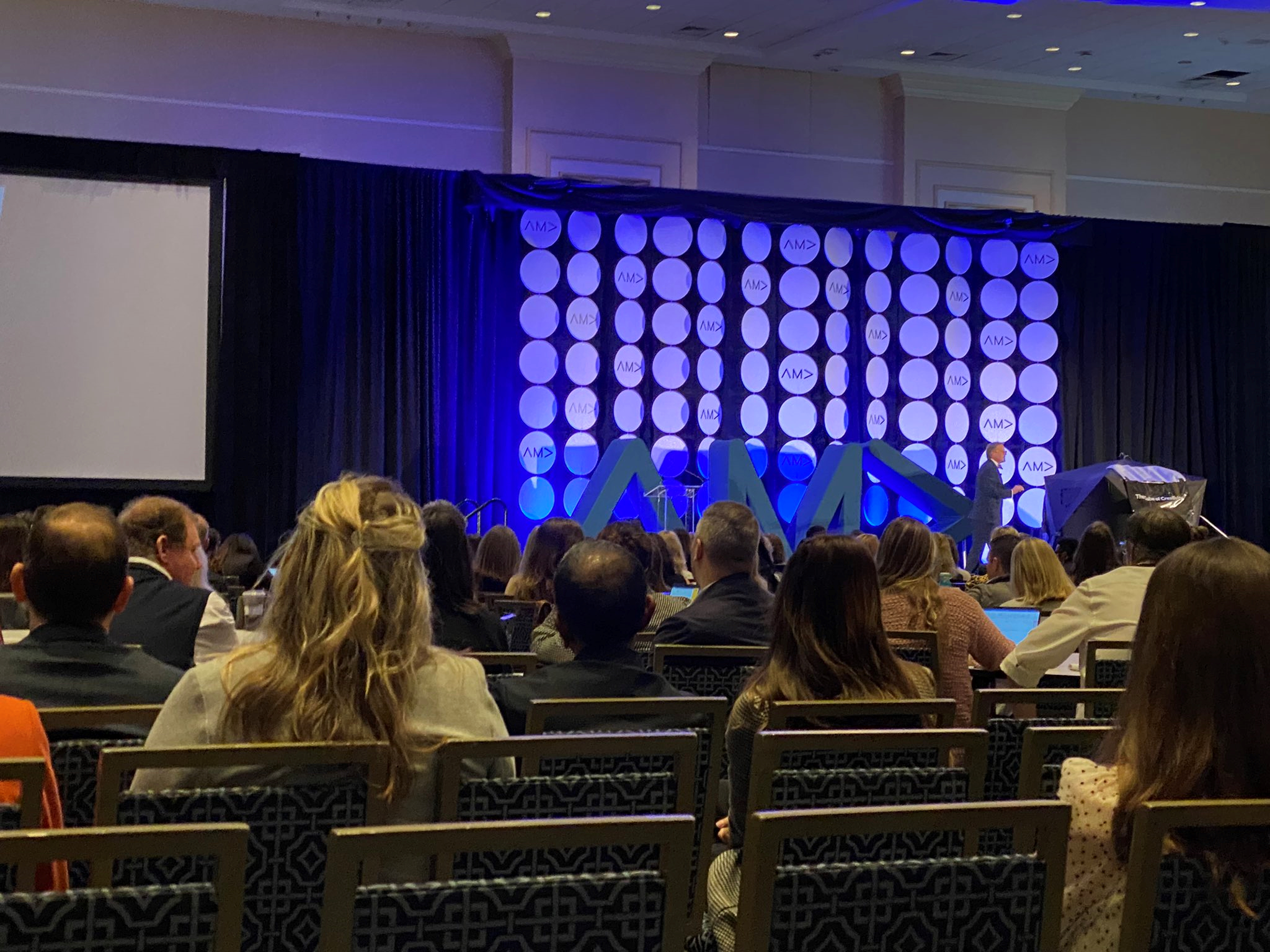As I write tonight, I am looking out at the majestic Potomac River on a beautiful sunny evening in National Harbor, Md. It has been a packed day at the American Marketing Association’s Symposium for the Marketing of Higher Ed. I have learned a lot but perhaps the best lesson from today came from the morning’s keynote speaker/bestselling author Andrew Davis.

As I write this, I am looking out my hotel window at the Potomac River.
Perhaps his message resonated with me so much because it doesn’t have to be marketing-specific. Trust me, I am a marketing nerd who enjoys concepts that only people in my field would find remotely interesting. But I also appreciate marketing principles that transcend concepts such as ROI, KPI, and CPC. Truthfully, I have a soft spot for marketing lessons that can be applied to everyday life.

Andrew Davis is brilliant! (photo is courtesy of his Twitter account….@DrewDavisIsHere)
Today, Andrew Davis introduced the Cube of Creativity. Its overlying message was that constraint breeds creativity. In a marketing industry and in a society where unlimited budgets, excess, bells and whistles, complexities, and add-ons run supreme, his message was different…but refreshing.
Davis’ Cube of Creativity was born out of the pandemic but its components might be even more necessary in present day. Whether you want to run a marketing campaign, throw a party, get in shape, beautify your lawn, or start a podcast, his four-step model can help you. It’s tenets are…
1. Stop all non-critical work activities – Eliminate the unnecessary
2. Define the outcome – Which single result defines success?
3. Limit the options – What unreasonable limitations can we apply to whatever project we are working on?
4. Raise the stakes – What will happen if we do not achieve the outcome?

A photo I took this morning of Andrew Davis entering his physical Cube of Creativity.
These four components are meant to cut down on waste and lead to activation. You want to get in shape? Who says you need a year to do it at a fancy gym? Couldn’t you set parameters based on a 6-week program that you do at your home?
Or who says you need to plan out a whole year of content for a podcast and meticulously shop around for the best podcasting platform before you begin? Couldn’t you, um, just give it a shot?
And do you really need a couple weeks to prep and prepare for a dinner party with your neighbors? Couldn’t you just send them an invite on Thursday and host them on Friday?
In life, long-term planning is necessary. However, what if we don’t have the luxury of time? Do we just throw in the towel? No. As Andrew suggests, you might have to kill a couple of current projects if it means achieving the objective that is currently most important. We can’t let our “business as usual” routines prevent us from achieving crucial goals.
Thanks to AMA for inviting Andrew Davis to this year’s symposium. His advice can be practiced both within our jobs and outside of the office. Don’t Blink.
